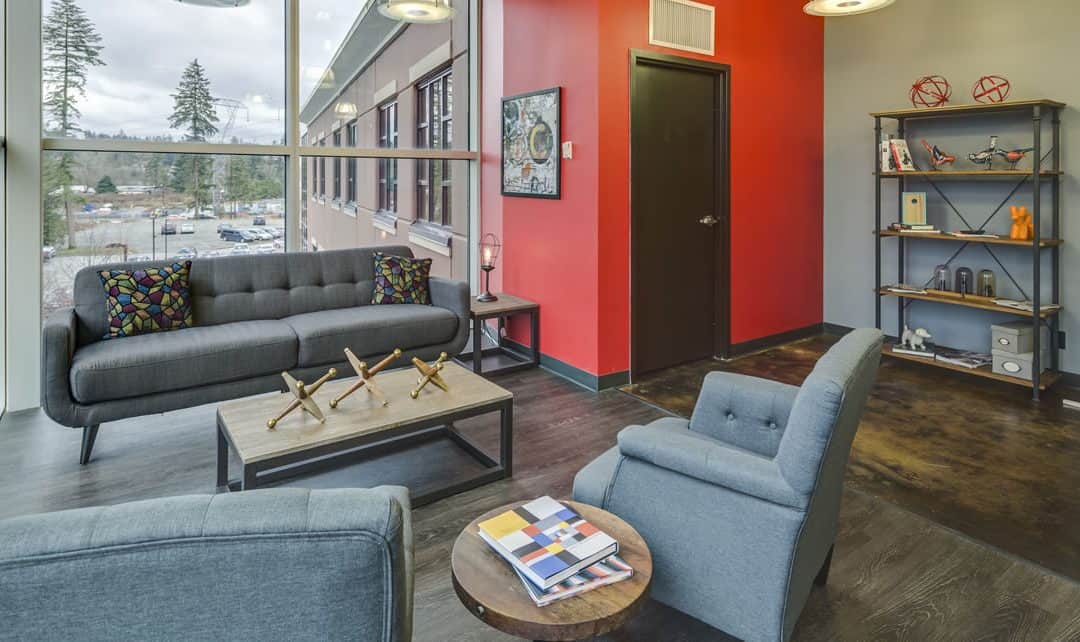The following is sponsored, promotional content. This content is not written by and does not necessarily reflect the views of REM.
Facilitated and accelerated by technological innovations such as as super-fast broadband, smartphones and laptops, flexible working makes it easier than ever for people to be mobile with their work.[1] Moreover, by providing new locations to work and network, flexible workspace providers like Regus make living in cities a choice rather than a necessity. This represents a fundamental shift in living and working, creating a ripple effect that’s felt from core businesses through to supply chains. And as well as improving the happiness of employees, it’s set to boost overall economic productivity in a big way.
There’s no denying that flexible working will play a significant role in our economy moving forward. By 2030, between 8% and 13% of all employment in developed economies will be associated with flexible workspaces[2], and many businesses have already begun the task of future-proofing their operations by partnering with companies such as Regus. Founded in Brussels in 1989, Regus’ network of over 3,000 locations in 120 countries makes it the world’s largest provider of flexible workspace solutions. From private offices to co-working areas, meeting rooms and business lounges, it perfectly meets the needs of today’s professionals, and counts some of the world’s most successful entrepreneurs and businesses as clients. But far from being a simple case of the right desk in the right space, or offering savings of up to 75% compared with traditional fixed real-estate alternatives, flexible working’s biggest benefit is arguably its human impact.
Flexible workspaces provide unparalleled convenience by opening the door to shorter commutes and greater choice of surroundings. From an environmental perspective alone, the decrease in transportation as a result of reduced commute distances could equate to millions of tonnes of reduced carbon dioxide emissions. And as well as enabling people to opt for a workspace closer to home (an increasingly common motivator in our time-poor society) or to work on the go, people are afforded the opportunity to move out of cities altogether – to cheaper and more spacious locations. As studies have shown, flexible and remote workers tend to report higher levels of happiness and job satisfaction than other workers[3]. It’s clear that whether this is the result of reduced commuting time or the option to work outside the city, flexible workspaces can and do improve the daily lives of the workforce.
And the benefits don’t stop there. As well as lowering overheads for companies, improving people’s quality of life and giving them more freedom in their work, flexible workspace will also improve how effectively people work.[4] In a recent Regus survey conducted by independent economists, 91% of respondents agreed that flexible workspace enhances employee productivity.[5] And as increased productivity contributes to economic growth, flexible workspace will strengthen the economy not just in cities, but wherever people choose to disperse.
This leads us to consider the bigger picture: by reducing the dominance of big city hubs, business and demand will spread more evenly around the country. The trend towards flexible working, therefore, has the potential to completely reshape the geography of our lives. And as people no longer need to be in cities for work, they’ll be free to live and make a living wherever suits them – whether that be the countryside, a new city, or simply a different area of their current city. The flexibility and efficiency that flexible workspaces provide will not only satisfy the workforce, but strengthen the economy.
To find your nearest Regus workspace, or discover how the Regus network can benefit your business, visit regus.ca or call +1 844 2441 5515 today.
[1] Regus economic study white paper
[2] Regus economic study white paper
[3] Regus economic study white paper
[4] Regus economic study white paper
With a range of office formats, as well as growing mobile, virtual office, and workplace recovery businesses, Regus is the world’s largest provider of flexible workspaces. Customers include successful entrepreneurs, individuals and multi-billion-dollar corporations. To find out more, visit regus.ca















